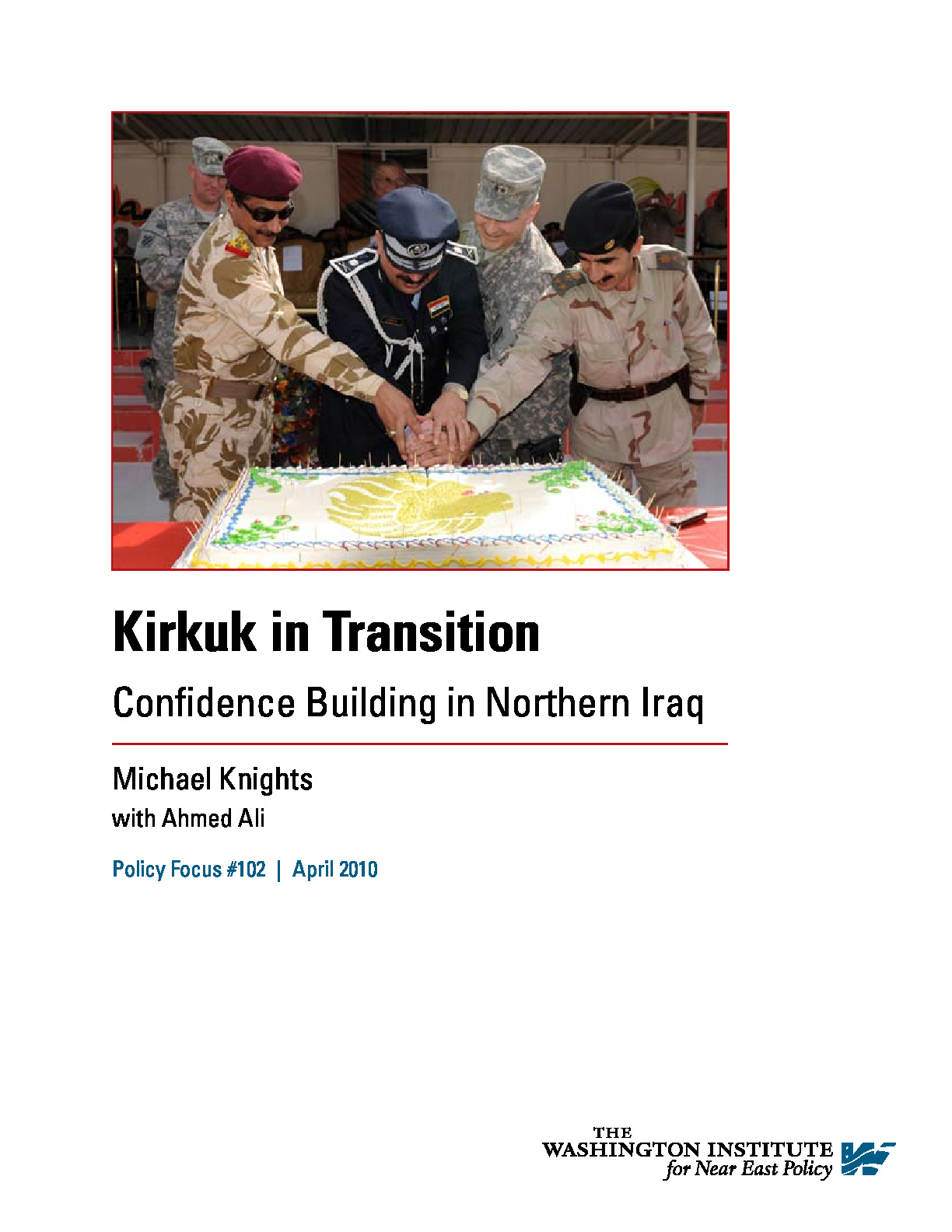As the United States seeks to reduce its military presence in Iraq, the ambitious withdrawal timetable laid out by President Barack Obama becomes vulnerable to disruption by a number of strategic factors. Chief among these is a violent breakdown of relations between the federal government in Baghdad and the Kurdistan Regional Government, particularly over the fate of the strategically significant Kirkuk province, rich in oil and gas reserves as well as valuable military terrain. If Kurdish political factions become a central pillar of Iraq's next coalition government, a moment may arise in 2010-2012 during which forward movement on Kirkuk's future is possible, with potentially significant impact on U.S. Iraq strategy.
In this landmark study, Michael Knights and Ahmed Ali prepare U.S. policymakers for near-term strategic opportunities in Kirkuk, focusing on bottom-up (local) approaches that the United States can facilitate in parallel with support of top-down (national) initiatives. By offering new perspectives on locally generated confidence- and security-building measures, Kirkuk in Transition fills a significant gap in the extensive literature on the province.
THE AUTHORS
Michael Knights, a Lafer fellow and interim director of the Military and Security Studies Program at The Washington Institute, has worked on Iraqi political and security issues since the mid-1990s. As head of the Iraq Analysis and Assessments cell for Olive Group, a private security provider, he directed information collection teams throughout the country. He has also provided support for U.S. Provincial Reconstruction Teams and Human Terrain System personnel in Iraq from the outset of both programs. Dr. Knights has authored, coauthored, or edited many publications on Iraq, including the Washington Institute reports Provincial Politics in Iraq: Fragmentation or New Awakening? (2008), The Calm before the Storm: The British Experience in Southern Iraq (2007), and Operation Iraqi Freedom and the New Iraq: Insights and Forecasts (2004), as well as the U.S. Naval Institute study Cradle of Conflict: Iraq and the Birth of the Modern U.S. Military (2005). He has also published widely on security issues for major media outlets such as Jane's Information Group.
Ahmed Ali, a native of Iraq, is a Marcia Robbins-Wilf research associate at The Washington Institute. Currently, he focuses on political dynamics in Kirkuk and wider Iraq, Arab-Kurdish relations, democratization, national reconciliation, and legislative-executive relations. In 2003, he worked as an interpreter and guide for French and U.S. media outlets reporting on the Iraq war, including CNN, the New York Times, France 2 Television, and Paris Match, and traveling extensively throughout Iraq's northern provinces.
-
68 pages




